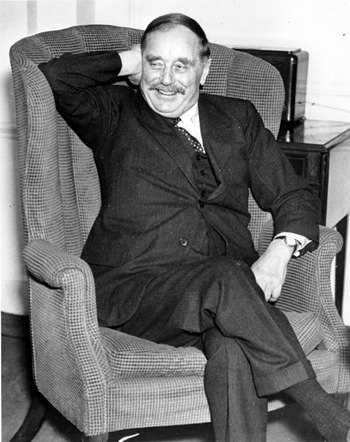New York (AP) — Here’s an odd story, from long ago: A man by the name of Meredith has converted a room in his house to a cluttered, dirty study. Meredith has a taste for Scotch whisky and one day asks a visiting friend, the story’s narrator, if he doesn’t notice something odd about the ceiling.

“Don’t you see it?” he said.
“See what?”
“The — thing. The woman.”
“I shook my head and looked at him.”
“All right then,” he said abruptly. “Don’t see it!”
This brief hybrid of ghost tale and detective story is called “The Haunted Ceiling” and its author is H.G. Wells, later known for such science-fiction classics as “The Invisible Man” and “The Time Machine.” He apparently wrote “The Haunted Ceiling” in the mid-1890s, when he was around 30, and left it unseen by others. It debuted last month, more than a century later.
“The atmosphere of this story was vintage Wells in that his stories always had the theme of an individual who is completely alone and is struggling to understand something mysterious,” said Andrew Gulli, managing editor of The Strand Magazine, a literary quarterly in which “The Haunted Ceiling” appears.
“At times, you’ll finish the story questioning whether you’ve read something either psychological or macabre.”
Gulli says he found “The Haunted Ceiling” after contacting the University of Illinois at Urbana-Champaign and asking for materials from the school’s Wells archive. After looking through over 3,000 pages of manuscripts, he came upon the story and realized it was unpublished. “The Haunted Ceiling” is so obscure that two Wells scholars, Patrick Parrinder and Michael Sherborne, said they had never seen it before. Judging from the style and content, they guessed it dated to around 1895, when ghost stories were popular and Wells was both prolific and in need of money.
“So the puzzle is, why was this one either never sold, or if sold never published?” says Parrinder, whose books include “Shadows of the Future: H.G. Wells, Science Fiction, and Prophecy.”
Wells was a versatile writer and completed some notable paranormal tales. In “The Story of the Inexperienced Ghost,” a man relates an occult encounter, becomes more and more agitated, collapses and dies, the narrator observing that “whether he did indeed pass there by that poor ghost’s incantation, or whether he was stricken suddenly by apoplexy in the midst of an idle tale — as the coroner’s jury would have us believe — is no matter for my judging.”
Sherborne does not consider “The Haunted Ceiling” a masterpiece, but praised the way “Wells focuses the tale through a skeptical narrator, an active personality who looks likely to provide the passive victim with a reassuring solution, only for a supernatural element to be reintroduced after all at the end.”
“It’s not one of Wells’ very best stories,” he added, “but it is a skillfully assembled anecdote which would, I think, be very effective as a self-contained magazine item.”




